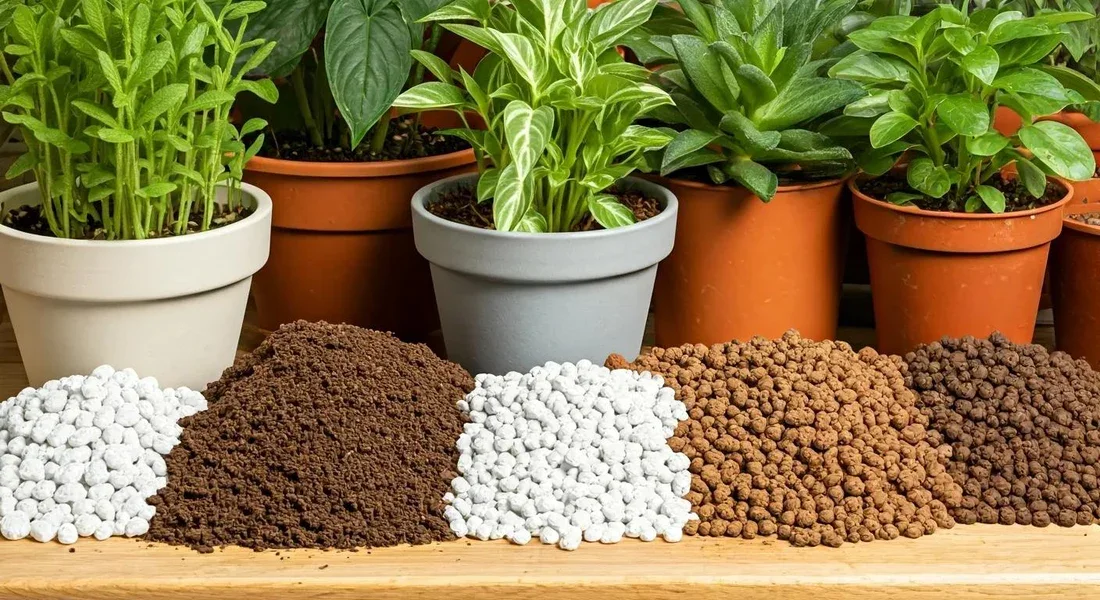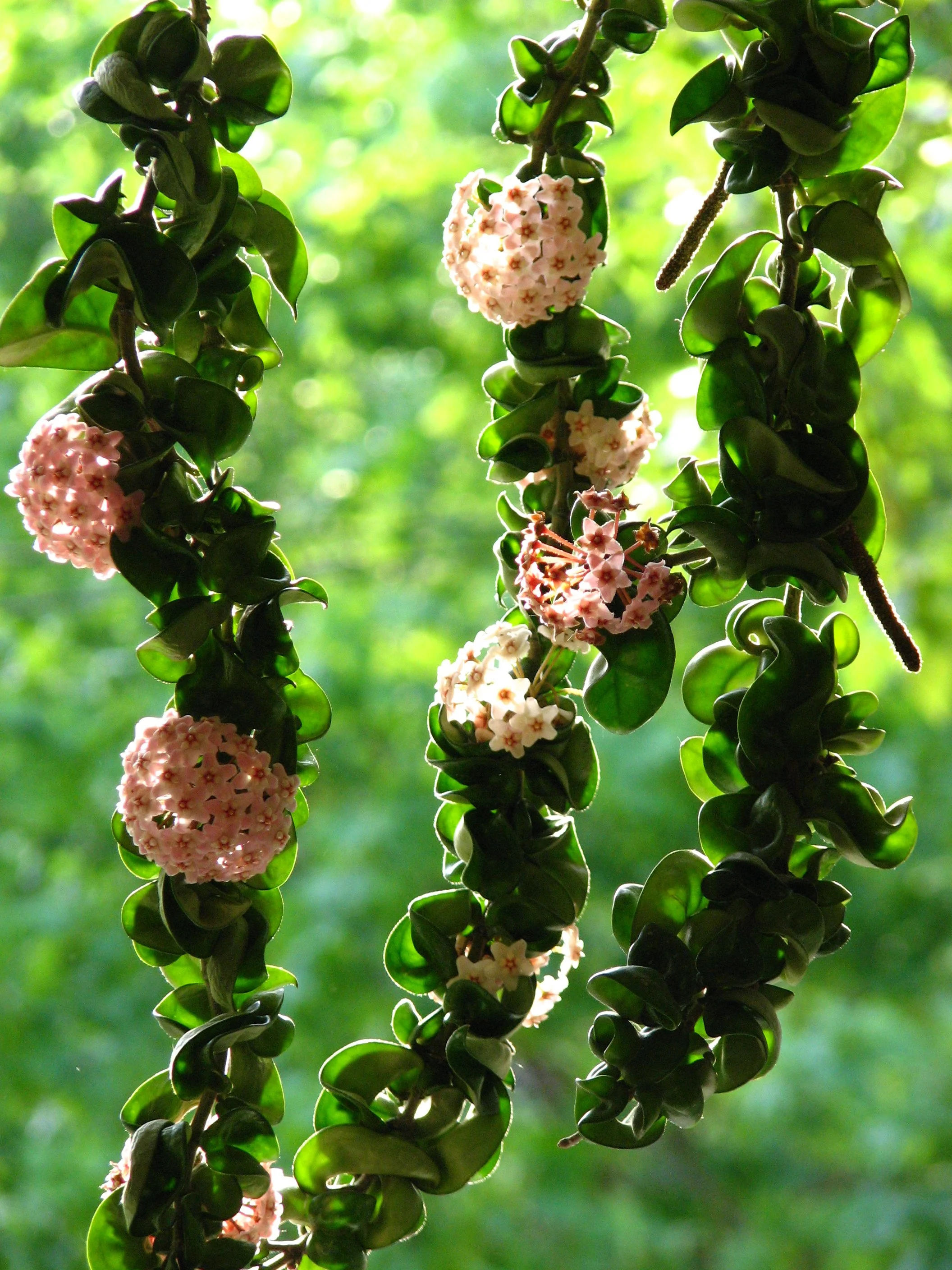The Perfect Hoya Soil Mix: What They Actually Want to Grow In
If you’ve ever pulled a Hoya out of its pot only to find more mush than roots — welcome to the club.
Finding the right soil for these epiphytic divas can feel like decoding a riddle written in peat moss.
Some people swear by chunky mixes, others by moisture-retentive ones, and every forum seems to have its own secret recipe.
The truth? Hoyas don’t want “houseplant soil.” They want air. They want structure. And above all, they want you to understand how they live in the wild — because that’s where the secret to perfect Hoya soil begins.
🌱 How Hoyas Actually Grow
Most Hoyas aren’t “potted plants” by nature — they’re epiphytes.
That means in the wild, they grow on trees or rocks, their roots nestled in pockets of moss, fallen leaves, or bark. They cling, rather than burrow.
Their roots crave oxygen, not compact soil. When we pot them in dense, moisture-trapping mixes, we’re basically asking them to live in swamp boots.
Think of your Hoya as an aerial adventurer — it likes a little moisture, sure, but it needs plenty of space to breathe.
The Core Principles of a Good Hoya Mix
Whether you mix your own or buy pre-made, the best Hoya soil should:
Drain quickly — excess water should escape within seconds, not minutes.
Hold some moisture — roots shouldn’t dry out instantly.
Be airy and light — plenty of space for oxygen.
Be stable over time — ingredients that don’t compact after a few waterings.
Photo by Classy Rabbit, Edited by Catey Plants
💡 Think of your mix as a balanced ecosystem, not a single-ingredient recipe.
🌿 My Go-To Hoya Mix
After a lot of experimenting (and a few too many repots), I’ve landed on a formula that keeps my Hoyas happy and my sanity intact.
DIY Version:
30% perlite or pumice
20% coco coir or other peat-free base
10% worm castings or compost (just a little nutrition boost)
Mix it up, moisten lightly, and you’ve got a Hoya-friendly base that mimics how they root in the wild — airy, supportive, and just the right kind of weird.
🌸 A Sustainable Shortcut I Love: Classy Rabbit Soil
If mixing your own isn’t your thing (or if you want a reliable base), Classy Rabbit’s Potting Mix has become my go-to. Their soilless mix is chunky, airy, and peat-free — and what I really appreciate is how closely their values align with sustainable growing practices.
I still tweak it a little depending on the species (for example, I’ll add extra pumice for my mountain Hoyas), but it’s a fantastic ready-made foundation if you care about both your plants and the planet.
(Not sponsored — just genuinely obsessed.)
Adjusting for Different Hoyas
Not all Hoyas are created equal — some come from misty mountain forests, others from sun-drenched jungles.
| Hoya Type | Adjustment Tip |
|---|---|
| Mountain Hoyas (H. curtisii, H. serpens) | Add more perlite or pumice for faster drying |
| Jungle Hoyas (H. pubicalyx, H. carnosa) | Add a bit more coco coir or moss for moisture retention |
| Large-leaf Hoyas | Prefer extra airflow around roots |
| Thin-leaf Hoyas | Appreciate slightly more consistent moisture |
Learning to “read” your plant’s roots and leaves is key — they’ll tell you if the mix is too dry or too dense.
Common Soil Mistakes (That Even Collectors Make)
Using ‘houseplant soil’ right out of the bag – it’s too dense and water-retentive.
Skipping chunky ingredients – Hoyas hate being smothered.
Not refreshing old mix – organic matter breaks down and suffocates roots.
Assuming all Hoyas want the same thing – variety matters (and that’s half the fun).
🌿 Final Thoughts
Getting Hoya soil right isn’t about memorizing a formula — it’s about understanding their roots, literally and figuratively. Once you do, you’ll start noticing new growth, thicker roots, and eventually, those elusive blooms everyone chases.
Your Hoyas will reward you with glossy leaves and fragrant flowers — all because you finally gave them what they were asking for: air, balance, and a little respect for their wild origins.
🌸 Next in the Hoya Series
If you found this helpful, keep exploring:
👉 How Often Should You Water a Hoya? (The Honest Guide) COMING SOON
👉 Why Your Hoya Isn’t Blooming (and How to Change That) COMING SOON
👉 Mountain vs. Jungle Hoyas: What Origin Changes About Care COMING SOON
👉 Trailing vs. Climbing Hoyas: What Type You Actually Have COMING SOON





